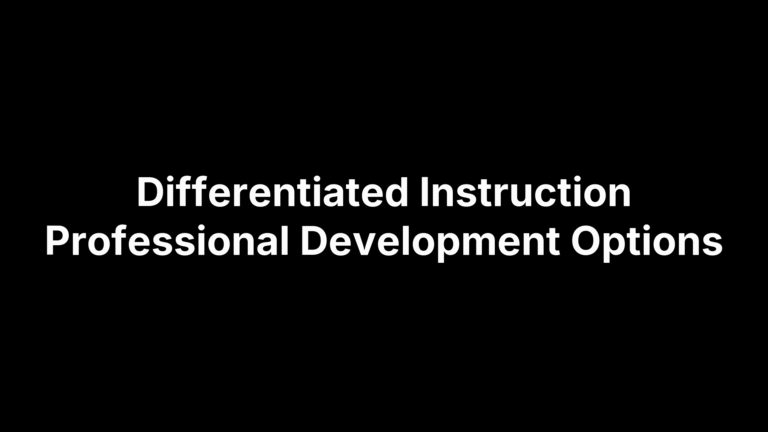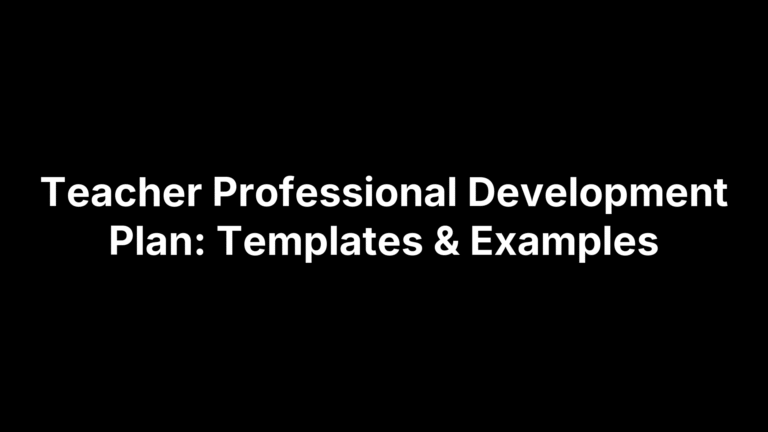Reading for 20 Minutes a Day Can Boost Student Success
Ever since I was a child, books have been my constant companions. Whether I was diving into magical realms or unraveling the mysteries of our universe, each page brought new adventures and knowledge. As I grew older, I began to realize that the simple act of reading, even for just a little while each day, had a profound impact on my life. This isn’t just my personal observation. There’s science to back it up!
The Science Behind Reading and Success
Reading, often perceived as a leisurely or academic activity, offers far-reaching effects that many might overlook. The act of decoding symbols (words), engaging with the content, and internalizing it requires a vast network of neural pathways. Here’s a deeper look into the science of how reading plays a pivotal role in our success:
Neurological Stimulation and Enhancement
- Brain Plasticity: The brain is a malleable organ. Consistent reading stimulates the brain, keeping it active and engaged, which leads to enhanced brain plasticity. This means the brain’s ability to change and adapt becomes sharper with time.
- Neural Connectivity: As you read, your brain forms new and strengthens existing neural pathways. This improved connectivity aids faster and more efficient thinking and problem-solving.
Cognitive Advancements
- Concentration and Focus: Immersing oneself in a book requires attention. Regular reading sessions can help improve one’s ability to focus on tasks at hand, beneficial in today’s world of constant distractions.
- Analytical Skills: Reading, especially complex literature or non-fiction, encourages individuals to think critically, draw connections, and analyze the content. Over time, this sharpens analytical and reasoning skills, which are pivotal for decision-making.
Vocabulary and Communication
- Vocabulary Expansion: Regular readers invariably expand their vocabulary. A rich vocabulary can significantly improve both written and oral communication skills, critical for academic and professional success.
- Improved Writing Skills: Exposure to well-constructed sentences, diverse vocabulary, and varied writing styles indirectly hones one’s writing abilities.
Emotional and Social Intelligence Boost
- Empathy Development: Literary fiction, in particular, offers readers a chance to ‘live’ through characters’ experiences. This helps in developing a deeper understanding of human emotions and situations, nurturing empathy.
- Cultural Awareness: Reading materials from different cultures and backgrounds broadens one’s horizon. It fosters an understanding and appreciation of diverse cultures, essential in our increasingly globalized world.
Stress Reduction and Mental Health
- Relaxation: Multiple studies have shown that even a few minutes of reading can significantly reduce stress levels. Lower stress translates to better mental health, improved concentration, and a positive attitude – all vital components of success.
- Mental Resilience: Reading about adversities faced by characters or real-life individuals can inspire resilience and perseverance.
Memory Enhancement
- Memory Muscle: Like a muscle, memory improves with exercise. Reading provides this exercise as readers constantly absorb, relate, and recall information.
- Mental Cataloging: The structured and sequential nature of books aids in better organization and storage of information in the brain.
The Magic of 20 Minutes
You might wonder, why exactly 20 minutes? It’s not too short that it’s ineffective, and not too long that it’s unmanageable. These 20 minutes can be a break from screens, a relaxation period, or a dedicated learning time. More importantly, the compound effect of this habit means that reading for just 20 minutes a day accumulates to over 120 hours a year! Imagine the wealth of knowledge, perspectives, and insights you can gain in that time.

Steps to Make Reading a Daily Habit
Incorporating reading into your daily routine might seem challenging given today’s fast-paced lifestyle. However, with deliberate effort and some tried-and-true strategies, you can cultivate a reading habit that not only stands the test of time but also becomes a cherished part of your day. Here are more detailed steps to help you make reading a daily habit:
Set Clear Intentions
- Define Your Why: Understand the reasons behind your desire to read daily. Is it for knowledge, relaxation, or personal growth? Having a clear “why” will help you stay motivated.
- Set Tangible Goals: Start with small goals like reading a certain number of pages or chapters daily. Gradually increase this as you become more comfortable.
Choose the Right Material
- Diverse Selections: Keep a mix of genres. If you have a heavy academic read, balance it with light fiction or an engaging magazine.
- Book Recommendations: Join online book clubs or forums. Recommendations from other readers can introduce you to books you might not have picked up otherwise.
Designate a Reading Space
- Comfort Is Key: Whether it’s a cozy corner with a plush chair, a spot by the window, or your bedside, ensure the space is comfortable and inviting.
- Distraction-Free Zone: Your reading space should be away from TV, loud noises, and other potential disturbances. This will allow you to immerse fully in your reading.
Incorporate Reading Triggers
- Routine Integration: Pair reading with another daily activity, such as having your morning coffee or right before bedtime. This way, one activity acts as a trigger for the other.
- Reminders: Set alarms or app reminders to carve out your reading time. Over time, this scheduled moment will become a natural part of your day.
Make It Social
- Book Clubs: Joining or forming a book club can add a social element to reading. Monthly or bi-monthly meetings give you an external motivation to finish books.
- Share and Discuss: Share interesting excerpts or the books you’re reading on social media. Discussions with friends or followers can enhance your understanding and appreciation of the book.
Stay Accountable
- Track Your Progress: Use apps or journals to keep track of the books you’ve read, the time you’ve spent reading, and your thoughts on each book.
- Reward System: Give yourself rewards after reaching certain milestones. This could be a new book purchase, a special treat, or anything that motivates you.
Flexibility is Essential
- Adjust Your Reading Time: If 20 minutes feels too long initially, start with 10. It’s more about consistency than the duration. As you develop the habit, you can increase the time.
- Listen to Books: On days when you can’t dedicate time to sit down and read, audiobooks can be an excellent alternative. Listen during commutes, workouts, or even while doing chores.
Cultivate Curiosity
- Read Beyond Books: Articles, journals, magazines, and blogs can be just as enriching. This variety can also prevent reading from feeling monotonous.
- Stay Open-Minded: Sometimes, pick up books outside your usual preferences. You might discover a new genre or topic that captivates you.
In essence, making reading a daily habit requires intention, consistency, and a touch of creativity. As with any habit, the initial phase requires more effort, but once solidified, reading will seamlessly blend into your daily life, offering endless benefits and joys.
Conclusion
As we wrap up, I urge you to give this 20-minute daily reading habit a shot. It’s a small investment of time with vast potential returns. Whether you’re a student looking to boost your academic prowess or just someone aiming for personal growth, these 20 minutes can be transformative. Remember, success is built on consistent, daily actions. So, grab a book and start your journey today!
Further Reading
Books
- “Reader, Come Home: The Reading Brain in a Digital World” by Maryanne Wolf: A deep exploration of how the brain processes information from different mediums, emphasizing the cognitive benefits of traditional reading.
- “Readicide: How Schools Are Killing Reading and What You Can Do About It” by Kelly Gallagher: This book sheds light on how certain educational practices hinder the development of a love for reading and offers strategies to encourage students to engage with texts daily.
- “The Book Whisperer: Awakening the Inner Reader in Every Child” by Donalyn Miller: An insightful guide on fostering a love for reading in students and ensuring they indulge in this habit daily.
Websites
- Reading Rockets (www.readingrockets.org): A treasure trove of strategies, lesson plans, and activities to promote reading in children. The website emphasizes the importance of daily reading and offers resources for teachers to implement this in classrooms.
- Common Lit (www.commonlit.org): A platform that offers free literacy resources and progress tracking tools. It’s a great resource for teachers aiming to encourage daily reading habits, as it provides both fiction and non-fiction reading materials suitable for various age groups.





